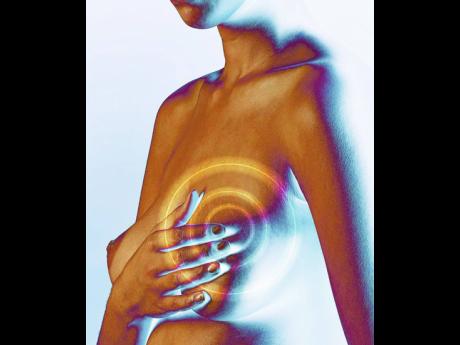Cancer alert - Medical oncologist urges persons to reduce risk factors to the disease
As Jamaica prepares to observe World Cancer Day on February 4, Dr Sheray Chin, medical oncologist, has encouraged persons to make significant changes in their lifestyle practices to reduce risk factors associated with the deadly disease.
The day will be observed under the theme ‘I Can and I Will’, which calls on persons to take action and take control of lifestyle choices that could help reach the target of reducing the number of premature deaths by cancer.
“I think there is ongoing research so we know more now than we did years ago about what causes cancer, but there are still a lot of unanswered questions. Cancer is a complex disease so there is no one cause, but we know that there are certain risk factors, which is what I think is really important to understand,” said Dr Chin.
Dr Chin said there are those people with increased risk factors, but most cancers are actually related to lifestyle factors, which can be addressed to lessen the risks of having cancer.
“The main things associated with the lifestyle factors are things we know already; things we know we shouldn’t do like cigarette smoking, excessive alcohol consumption, diet, not having enough physical activity, because a lack of physical activity and a sedentary lifestyle is associated with lifestyle diseases of which cancer is one,” Chin shared.
She added that the excessive consumption of red meat, for example, and processed foods have a definite link to cancer.
She also shared that the negative connotation attached to speaking about cancer needs to be dealt with as this could aid in early detection.
“Because cancer is so common, everyone probably knows someone who has a diagnosis or is going through it, and it’s very important that we don’t have that taboo of not speaking about it, which, when I would speak to patients years ago that was the issue; they didn’t want to speak about it,” she recalled,
“We see patients present at late stages because of denial and ignoring the problem. Knowing what is happening, you’ve won the power to do what we can to treat it as best we can. So any abnormalities must be checked out promptly,” Chin advised.
Therefore, cancer screenings are very important even before symptoms show up.
“Screening for cancer means doing tests which will pick up abnormalities that may become cancerous. We try to prevent them so, for example, for women doing their Pap smears, having colon cancer screenings before any symptoms or abnormalities occur,” the oncologist said.
She further explained that screening and corresponding conversations should begin between the ages of 40 and 45, except for certain cancers. For example, women are expected to do cervical cancer screening as soon as they are sexually active, and breast awareness should begin as soon as the girls start developing breast or in her 20s, and when a woman reaches the age of 40, breast cancer screenings should be discussed.
With all of this information, Dr Chin said the number of cancer screenings is not at the level where it should be, and that is alarming.
“The number of cancer screenings is not where we should be, so I think we need to work on getting screening more accepted by persons; especially with the fact that we can always pick up something before it becomes cancer or before it becomes serious so that it can be treated and cured before it’s too late,” Dr Chin encouraged.

